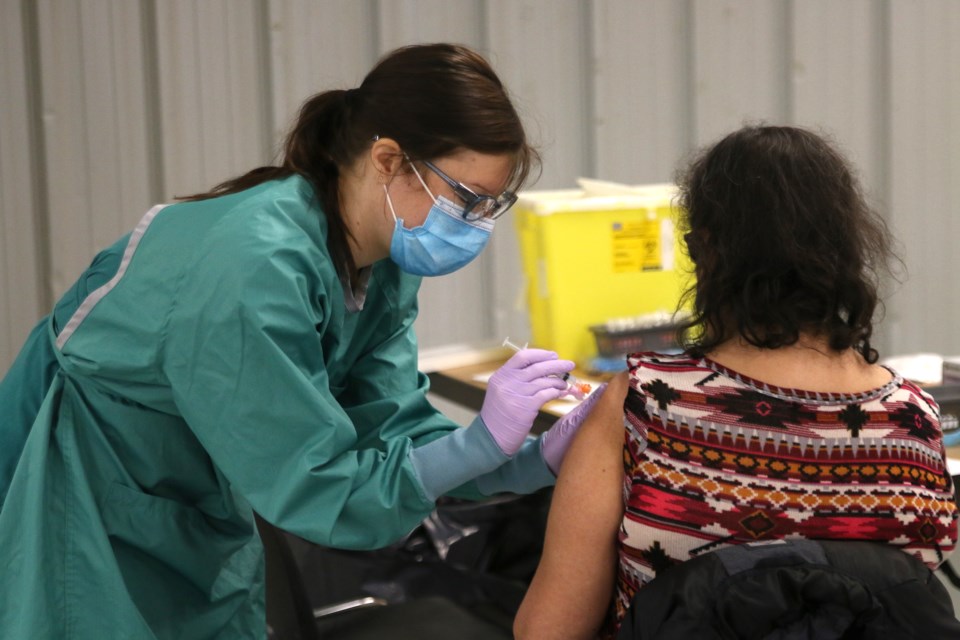THUNDER BAY - William Esquaga, an elder from Sand Point First Nation, is encouraging all Anishnawbe people to be warriors and roll up their sleeves to get the COVID-19 vaccine.
“It’s very important to get the vaccine,” he said. “As Anishnawbe people, I have to think of one of the seven sacred teachings that we have, I would have to take bravery, because we are all at war with this Coronavirus. Taking the vaccine is like warrior. We are all warriors to tackle the Coronavirus.”
Esquaga received his first dose of the Moderna COVID-19 vaccine last week and he was on hand during a clinic held on Tuesday by the Anishnawbe Mushkiki to help ease any vaccine hesitancy among others.
“All Anishnawbe people should participate and be a warrior against this pandemic,” he said. “I encourage everyone to participate, to do some good for yourself and all people.”
The clinics this week have expanded to include urban Indigenous people living in Thunder Bay over the age of 40, as well as non-Indigenous partners living in the same residence and also over the age of 40.
David Delafosse, vaccination clinic coordinator with Anishnawbe Mushkiki, said the age was lowered to those over 40 because the uptake wasn’t as high as they were hoping when the age was over 55.
“We are just making sure as many people get vaccinated with the doses we have,” he said. “We’ve had quite the busy morning and this afternoon will be more of the same and we are hoping to get as many people vaccinated as possible.”
Anishnawbe Mushkiki has been allocated approximately 1,000 doses of the Moderna vaccine. Contingencies are in place for any additional vaccines that have not been used but Delafosse said he does not know yet when the age limit will be lowered past 40-years-old.
“There is a specific criteria set forth by the provincial government for when we can lower age ranges,” he said. “Unfortunately, I’m not too sure when that will be but hopefully we can get to that soon.
Urban Indigenous people have been identified in the province’s vaccine rollout as a high priority due to health risks and access to health care in remote communities.
“People travel back to their communities and maybe have less access to health care in their communities,” Delafosse said. “If there was ever an outbreak, it could cause some problems.”
Those registering for a vaccine have to follow a set of criteria and Esquaga said it was a very smooth process. He registered with his band representative in Sand Point First Nation and everything was taken care of and he showed up to the clinic and was in and out in less than 30 minutes.
“I was relieved to get it,” he said. “I encourage everyone to take the vaccine, regardless of what’s out there. We need to protect ourselves and others, especially our extreme elders and our young.”
The clinic has interpreters and elders on site in an effort to reduce vaccine hesitancy. Delafosse said he hopes it helps people feel safe and comfortable receiving the vaccine.
“I think the majority of people who come into the vaccination clinic are pretty excited to get the vaccine and getting that one more step toward normalcy,” he said. “There is some hesitancy, but if anyone has any questions they can contact the clinic.”
Esquaga added that he has heard from some who are hesitant to get the shot because of misinformation that is circulating, but he is also hopeful people will trust science and do their part to keep everyone safe.
“There are many different rumours out there, many different groups are saying not to take the vaccine, but the other side has facts and that’s what we should go with, is facts,” he said.
